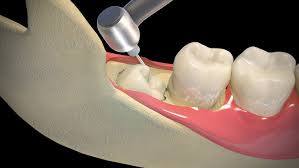Health & Fitness
16 Warning Signs of Alcohol Relapse and Tips to Prevent Them
Relapse doesn’t happen all at once. It starts with small signs. These signs show up in your thoughts, moods, and actions. If you spot them early, you can take control before things get worse. This awareness is a key part of alcohol use disorder treatment.
- Isolation
You stop reaching out. You avoid friends or support groups. Being alone too much can lead to old habits. Stay connected to people who support your recovery. - Skipping Meetings
You start missing therapy or group sessions. This breaks your routine. It also weakens your support system. Make these meetings a priority. - Romanticizing Drinking
You start thinking about the “good times” with alcohol. You forget the pain it caused. Catch these thoughts early and remind yourself why you quit. - Lying or Hiding
You keep secrets about your feelings or choices. This is a sign you’re not being honest with yourself. Talk to someone you trust. - Mood Swings
You feel angry, sad, or anxious more often. These emotional changes can lead to poor decisions. Use breathing, journaling, or exercise to manage your mood. - Neglecting Self-Care
You stop eating well or sleeping well. You skip hygiene or let your space get messy. These are early signs of slipping. Bring back small daily habits. - Loss of Interest
Things you once enjoyed now feel boring. You may feel numb or restless. Try new hobbies or return to old ones that helped you feel good. - Thinking You’re Cured
You believe you don’t need help anymore. You may think one drink won’t hurt. Stay grounded. Recovery is a lifelong journey. - Feeling Overconfident
You take risks you used to avoid. You go to bars or hang out with people who drink. Confidence is good, but stay cautious. - Poor Boundaries
You let toxic people back into your life. Or you say yes when you should say no. Protect your space and peace. - Skipping Medication
If you’re on medication, missing doses is risky. It can affect your mood and cravings. Always take your meds as prescribed. - Bottling Up Feelings
You stop sharing how you feel. Holding in pain or anger builds pressure. That pressure can lead to relapse. Talk it out instead. - Financial Stress
Money worries can trigger anxiety. Anxiety can lead to poor choices. Ask for help or advice when you’re overwhelmed. - Increased Cravings
You notice stronger urges to drink. These cravings don’t mean failure. But they do mean it’s time to act. Use the coping skills you’ve learned. - Being Around Alcohol
Even if you don’t drink, being near it too much is risky. Leave places that make you uncomfortable. Stay in control of your space. - Justifying One Drink
You tell yourself, “Just one won’t hurt.” This is the biggest warning. One drink is never just one. Stay strong and stick to your plan.
You have come far. A relapse doesn’t mean you’ve failed, but preventing it is better. Keep these signs in mind. Share them with people close to you. Staying alert is part of long-term success after alcohol use disorder treatment.



